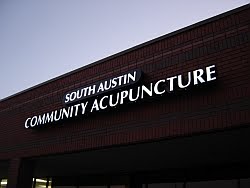
We treat a lot of patients for insomnia at South Austin Community Acupuncture. Most people have dealt with it at some point. Sometimes it pales in comparison to all the other events in one's life while at other times it is the axis of all our other problems.
In nosing around I came across something in the Harvard Mental Health Letter, which basically seemed like the biomedical protocol for dealing with insomnia. It ran over the use of cognitive behavioral therapy and of course medications. There are caveats of using therapy first and drugs second and if drugs then low doses and for short duration. But I wonder what the reality of that is. There was some reference to relaxation and reconditioning.
The whole reason I looked up insomnia in the first place was because I came across another different article in the American Journal of Public Health: “The Medicalization of Sleeplessness: A Public Health Concern”. The abstract states: “ sleeplessness complaints and insomnia diagnoses increased over time and were far outpaced by prescriptions for sedative hypnotics” (italics mine). The article is an overview of the author's dissertation and reflects that “[p]hysicians were cognizant and critical of medicalization. They conceptualized insomnia as a symptom, part of the aging process, or a reaction to stress - not a disease.”
Maybe we should have a few more steps in between the statement: “I can't sleep” and the prescription pad. A “public health concern” that is “not a disease” doesn't need to be attacked with pharmaceuticals as often as it is. I would like to see the “Relaxation Techniques” and “Reconditioning” (really poor choice of words, that) sections from Harvard's protocol explode as treatment options: get some exercise, meditate, take a tai chi or yoga class, learn to dance, learn to paint. Try some acupuncture. Learn what sleeping with strangers is about and how it often leads to better sleep on your own. And if you already know, tell a friend that it can probably help them, too.



